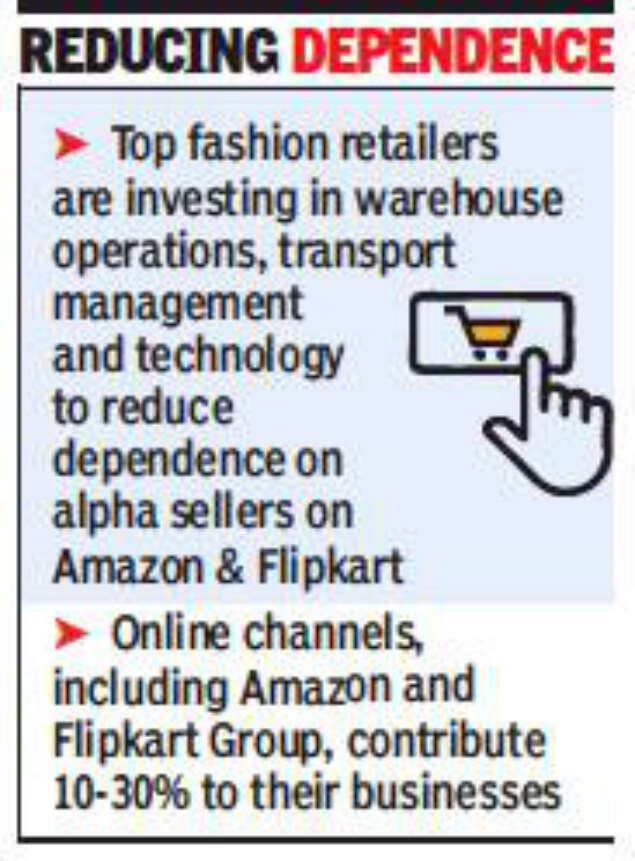Online e-tailers such as Amazon and Flipkart are not the only ones having to rethink their business models after the government tightened norms for foreign investment in e-commerce. Several large fashion brands that sell their products on these platforms, too, are tweaking the way they do business to shield themselves from the uncertainty in the sector.
These brands, which have traditionally adopted a wholesale approach to e-commerce — selling products in bulk to large vendors on these platforms — are now ramping up capabilities to become large sellers themselves. In addition, they are gearing up to boost sales through their own e- commerce sites. The goal eventually is to bring down dependence on online marketplaces’ alpha sellers.

“This season, our online sales are down 20-30% due to the ongoing reshuffle in Myntra and Jabong after Walmart took over Flipkart, while sales through our own ecommerce site doubled over last year,” said the CEO of a global fashion retailer.
To accelerate the transformation, these companies are investing in new capabilities. “It’s different than sending large consignments in trucks, as there can be small-ticket orders such as a pair of shoes from a single customer,” said a senior executive at a sportswear company. “Returns from sale on online marketplaces could be as high as 20-30%, so that has to be managed too.”
When contacted, a Myntra spokesperson said, “Myntra and Jabong continue to grow at a healthy rate with a firm focus on delivering the best of fashion and lifestyle for our customers.”
These brands, which have traditionally adopted a wholesale approach to e-commerce — selling products in bulk to large vendors on these platforms — are now ramping up capabilities to become large sellers themselves. In addition, they are gearing up to boost sales through their own e- commerce sites. The goal eventually is to bring down dependence on online marketplaces’ alpha sellers.

“This season, our online sales are down 20-30% due to the ongoing reshuffle in Myntra and Jabong after Walmart took over Flipkart, while sales through our own ecommerce site doubled over last year,” said the CEO of a global fashion retailer.
To accelerate the transformation, these companies are investing in new capabilities. “It’s different than sending large consignments in trucks, as there can be small-ticket orders such as a pair of shoes from a single customer,” said a senior executive at a sportswear company. “Returns from sale on online marketplaces could be as high as 20-30%, so that has to be managed too.”
When contacted, a Myntra spokesperson said, “Myntra and Jabong continue to grow at a healthy rate with a firm focus on delivering the best of fashion and lifestyle for our customers.”
No comments:
Post a Comment